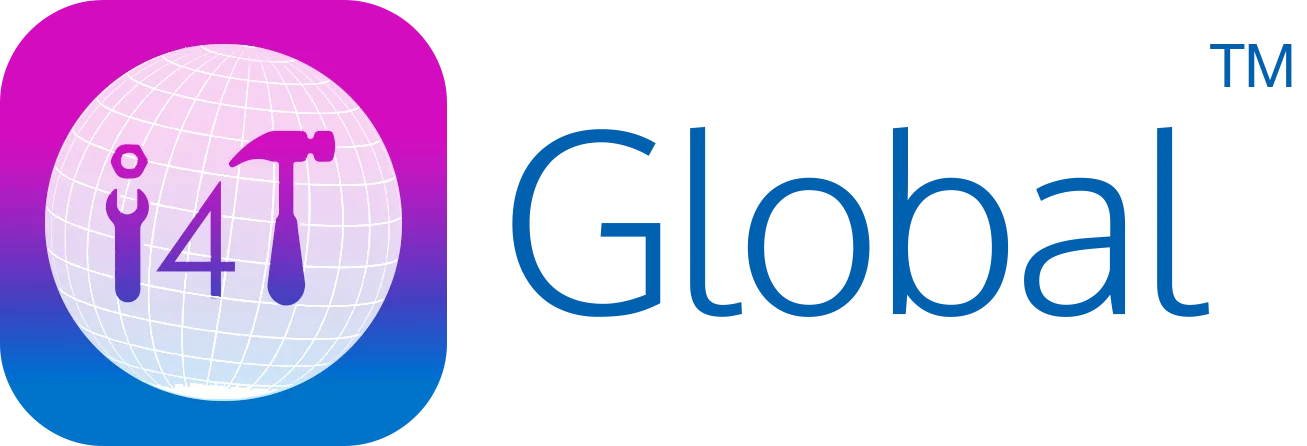As you know, managing off-site technicians is the key to improving efficiency and maximizing customer satisfaction in the field service industry. That’s why modern business management systems have become more popular among successful field service providers in the recent past.
Don’t worry if you have no clue what’s a business management software (BMS). In this article, we will dive in deep to give you detailed information regarding the importance of BMS in field service management (FSM). Further, we will discuss the key features that should be there in a robust business management system.
What is a Business Management System and its role in field service businesses?
A business management system saves time, reduces mistakes, and makes customers happier because you can do the job more efficiently.
Key BMS features for field service success

Key features are like the unique ingredients that make a perfect dish. There are many important features of a business management system that affect the success of field service businesses. Let us break them down so you can learn what they are and why they’re crucial.
Integrated scheduling and dispatching
Integrated scheduling and dispatching is like having a master planner coordinating all the moving parts of your field service business. It’s a feature within business management software that helps you schedule jobs. Further, it helps to assign jobs to the right technicians and send them to the right places at the right times. Let’s look at the benefits of this feature.
- Optimized efficiency: This feature ensures that appointments are scheduled in the most efficient way possible. It considers factors like technician availability, location, and urgency of the job. This means you’re not wasting time or resources unnecessarily.
- Reduced downtime: With integrated scheduling, you can minimize downtime between appointments. Technicians are dispatched based on their proximity to the job location, reducing travel time and increasing the number of tasks they can complete daily.
- Real-time updates: Dispatchers and managers can track technicians in real-time, knowing their current location and job status. This enables better communication and quicker responses to unexpected changes or emergencies.
- Customer satisfaction: Integrated scheduling ensures that appointments are kept on time. This enhances customer satisfaction as clients don’t have to wait around for technicians, leading to positive reviews and repeat business.
Mobile access
Mobile access is a feature that allows your field service team to access all the necessary information and communicate through their smartphones or tablets. It’s like carrying your office with you wherever you go. This ensures that your team is connected and equipped even when they’re on the move. Let’s look at the benefits of this feature.
- Real-time updates: Technicians can receive job assignments, updates, and changes instantly on mobile devices. This means they’re always aware of the latest information, reducing the chances of misunderstandings or delays.
- Efficient communication: With mobile access, your team can communicate with each other and the office in real-time. This facilitates team collaboration, allowing technicians to ask questions, get clarifications, and provide updates without delay.
- On-the-go information: Technicians have access to customer histories, job details, and any necessary document at their fingertips. This saves time and ensures that they’re well-prepared for each task.
- Navigation and routing: Mobile devices can provide GPS navigation and optimized routes to job locations. This ensures that technicians reach their destinations quickly and efficiently, minimizing travel time and fuel costs.
- Digital work orders: Paperwork is a thing of the past. Mobile access allows technicians to complete digital work orders, capture signatures electronically, and submit reports on-site. This eliminates the need for manual data entry and reduces errors.
Customer relationship management (CRM)
This is a feature that helps you manage all interactions and relationships with your customers. It’s like a digital diary and communication hub that stores customer details, preferences, service history, and interactions in one place. Let’s look at the benefits of this feature.
- Personalized service: This allows you to store important customer information such as past service history, preferences, and special requests in one place. It enables your team to provide customized service to each customer, making them feel valued and understood.
- Easy appointment scheduling: This feature helps you keep track of customer schedules and availability. Therefore you can schedule appointments that suit your customer, leading to better customer satisfaction.
- Follow-up opportunities: This feature reminds you of follow-up tasks, like sending thank-you emails, service reminders, or asking for feedback. As a result, it helps you to keep close contact with the customer leading to repeat business.
Work order management
This feature allows you to create, assign, track, and manage tasks or jobs from start to finish. It will make sure nothing falls through the cracks. Let’s look at the benefits of this feature.
- Structured process: Work order management provides a structured approach to handling tasks. It ensures that each job is properly documented, assigned, and tracked, leading to a more organized workflow.
- Clear instructions: Each work order contains all the necessary information for the task. This includes job details, customer information, required materials, and specific instructions. This clarity reduces confusion and errors.
- Efficient assignment: The feature helps you assign the right technician to the right job based on skills, availability, and proximity to the job site. This ensures optimal resource utilization.
- Priority management: Work orders can be categorized by priority, allowing you to focus on urgent tasks and plan your schedule accordingly.
Accounting and invoicing
This feature within your business management software handles financial transactions and ensures you get paid for your services. It’s like the financial engine that keeps your business running smoothly. Let’s look at the benefits of this feature.
- Accurate invoicing: With this feature, you can generate professional invoices quickly and accurately. It includes details like service description, pricing, and terms, reducing billing errors and disputes.
- Timely payments: Invoicing promptly after completing a job improves your chances of getting paid on time. Automated invoicing ensures that you don’t miss sending invoices for completed work.
- Consistent branding: Invoicing templates can be customized to match your branding, creating a professional image and instilling trust in your services.
- Tracking payments: The software helps you track which invoices have been paid, which are pending, and which might be overdue. This helps you manage your cash flow effectively.
Data analysis and reporting
Data analysis and reporting features in your business management software help you make sense of the information you collect during your field service operations. It’s like having a magnifying glass that uncovers insights hidden within your business data. Let’s look at the benefits of this feature.
- Informed decision-making: Data analysis allows you to make decisions based on facts rather than guesses. You can identify your business’s patterns, trends, and areas of improvement.
- Performance evaluation: Reporting provides a clear overview of your team’s performance, showing who’s excelling and where improvement is needed.
- Resource allocation: Through data analysis, you can identify where resources (technician time, vehicles, or equipment) are utilized most effectively and make adjustments as needed.
- Service demand: By analyzing data, you can identify which services are most in demand, helping you allocate more resources and improve those services.
- Customer insights: Data analysis can reveal customer preferences, behaviors, and satisfaction levels. This helps you to make adjustments to such services so that it meets customer expectations.
How to choose the right BMS for your field service business
Investing in the right business management software can be a critical decision. Especially since it can affect your entire business process. Therefore you should make the right choice from the beginning itself. Here are some factors to consider and tips you can use when selecting the ideal software solution.
Factors to consider when selecting a BMS for a field service business
- Features and modules: Identify the specific needs of your field service business. Look for a BMS that offers essential features like scheduling, dispatching, invoicing, etc. that suit the requirements of your business. Make sure it aligns with your business process.
- Scalability: Choose software that can grow with your business. As your operations expand, the software should accommodate more users, and customers, and process more data.
- Integration: If you’re using other tools like accounting software, CRM systems, etc. ensure that the BMS can integrate with them seamlessly. This prevents data silos and enhances efficiency.
- Mobile compatibility: Your field service team highly relies on mobile devices. Ensure that the software has a mobile app or responsive web interface that allows technicians to access information and update job statuses on the go.
- User-friendliness: The software should be intuitive and user-friendly. Your team should be able to use it effectively and easily.
- Cost and pricing model: Understand the pricing structure of the software system. Some options have monthly subscriptions, while others may charge per user or job. Choose a pricing model that aligns with your budget and usage.
- Trial period: Many software providers offer trial periods. Take advantage of this to test the software’s functionality and suitability for your business.
Tips and recommendations
- Involve your team: Get input from your technicians and staff who will be using the software. Their insights can help you choose a solution that meets their needs.
- Research and compare: Don’t settle for the first option. Research and compare different BMS options to find the one that suits your business best.
- Read reviews: Check online reviews and testimonials from businesses similar to yours. This can provide valuable insights into the pros and cons of different software options.
- Ask for demos: Request demos from potential FSM software providers. This hands-on experience will help you understand how the software works and whether it fits your processes well.
- Training: Ensure that the software provider offers training resources to help your team get up to speed quickly.
- Vendor reputation: Opt for a reputable vendor with a good history of providing reliable software and excellent customer support.
Conclusion
As you can see, choosing the right business management software for your business is a critical decision. It can involve a significant cost and affect the operations of your business. Therefore consider the features we discussed earlier when choosing FSM software. Such features include scheduling and dispatching, mobile accessibility, customer relationship management, work order management, invoicing, and data analysis.
If you are looking for a BMS for your field service business, try i4T Business. Don’t just take our word for it. We invite you to experience the power of i4T Business firsthand. Click here to book a demo.
Are you ready to transform your field service operations with i4T Business? Contact us today! Our team is ready and eager to assist you in leveraging our tools for the success of your business. Start your journey to field service success with i4T Business today!
FAQs
BMS is a software that helps businesses manage various aspects of their operations. For field service businesses, it’s essential as it streamlines scheduling, dispatching, invoicing, and more, leading to improved efficiency and customer satisfaction.
Many software options offer scalability, allowing businesses of all sizes, from small startups to large enterprises, to benefit from their features and functionalities.
Yes, reputable BMS solutions typically offer mobile apps compatible with Android and iOS platforms, ensuring accessibility for all technicians.
Absolutely. Work order management often includes priority settings, ensuring that urgent tasks are addressed promptly while maintaining an organized workflow.
Data analysis and reporting provide insights into service history, customer requests, and operational strengths and weaknesses. This information helps businesses adapt to changing needs and make informed strategic decisions.
Hot off the press!

With our cutting-edge technology and in-depth knowledge of how the Field Service Management sector operates, the i4TGlobal Team loves to share industry insights to help streamline your business processes and generate new leads. We are driven by innovation and are passionate about delivering solutions that are transparent, compliant, efficient and safe for all stakeholders and across all touch points.




